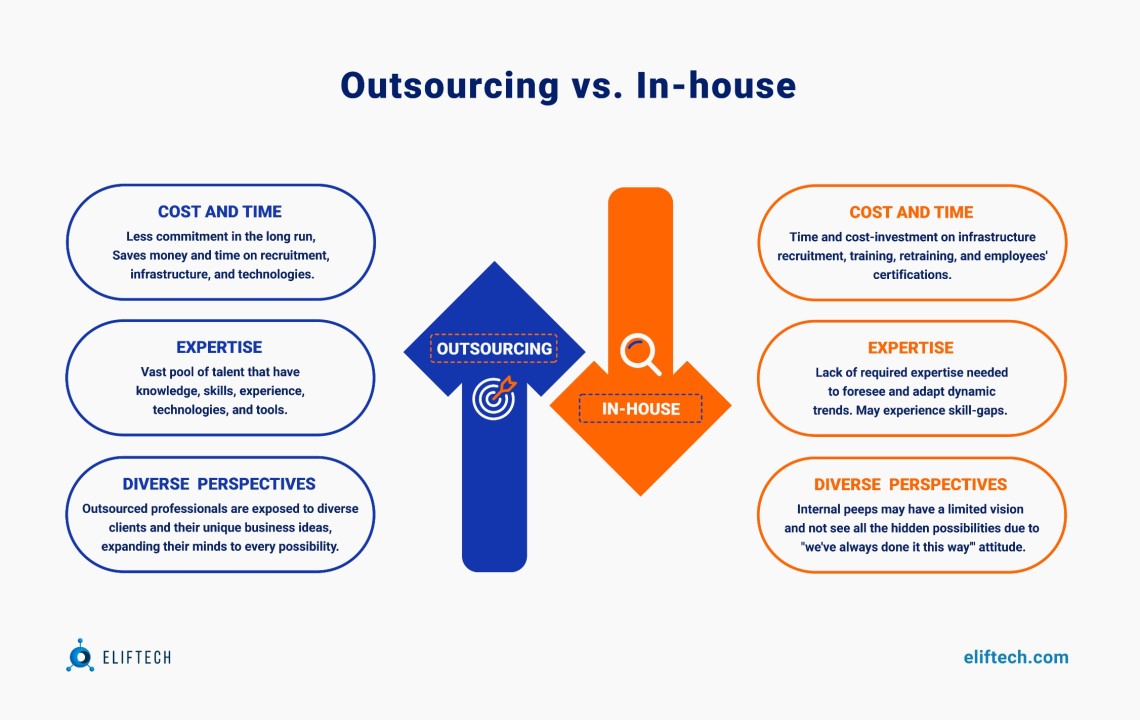In-house development
What is In-House Development?
Definition:
In-House Development refers to the practice of creating and maintaining software, applications, or other technological solutions within an organization, using the organization’s internal resources, such as its own team of developers, designers, and project managers. This approach contrasts with outsourcing, where external third-party vendors or contractors are hired to handle the development process. In-house development allows organizations to have direct control over the entire development lifecycle and maintain proprietary knowledge and expertise.
Analogy:
Think of in-house development as a kitchen in a restaurant. Just as a restaurant prepares its own dishes from scratch using its chefs and ingredients, in-house development involves an organization creating its software or technology solutions using its internal team and resources.
Further Description:
In-house development involves several key aspects:
Internal Development Team: Organizations have their own team of developers, designers, testers, and project managers who work collaboratively to plan, create, and maintain software solutions.
Direct Control: In-house development provides organizations with direct control over the entire development process. This includes decision-making, prioritization, and the ability to adapt quickly to changing requirements.
Proprietary Knowledge: By keeping development activities in-house, organizations retain proprietary knowledge and expertise, reducing the risk of intellectual property loss and maintaining a competitive edge.
Customization: In-house development allows organizations to tailor software solutions to meet their specific needs, ensuring that the final product aligns closely with business objectives and workflows.
Communication and Collaboration: Proximity and shared organizational culture facilitate better communication and collaboration among team members, leading to more effective problem-solving and project execution.
Why is In-House Development Important?
Control and Flexibility: In-house development provides organizations with direct control over the development process, enabling them to adapt quickly to changing requirements and market conditions.
Cost Control: While in-house development may have higher initial costs, it can lead to cost savings in the long run, as organizations avoid ongoing expenses associated with outsourcing contracts.
Security and Confidentiality: Keeping development in-house enhances security and confidentiality, as sensitive information is handled within the organization’s secure environment.
Customization and Innovation: In-house teams can focus on creating customized solutions that directly address the organization’s unique needs, fostering innovation and a competitive advantage.
Efficient Collaboration: Proximity and shared organizational culture facilitate efficient communication and collaboration among team members, leading to faster decision-making and problem-solving.
Examples and Usage:
Google: Google is known for its in-house development of various software products, including the Android operating system, Chrome browser, and numerous other applications. This approach allows them to maintain control over the user experience and innovation.
Amazon: Amazon, with its extensive technology infrastructure, relies heavily on in-house development for its e-commerce platform, cloud services (AWS), and other technological solutions to support its diverse business operations.
Microsoft: Microsoft has a long history of in-house development, creating operating systems like Windows, productivity software like Microsoft Office, and a wide range of business solutions.
Key Takeaways:
- In-house development provides organizations with direct control over the entire development process, enabling quick adaptation to changing requirements.
- Keeping development activities in-house helps organizations retain proprietary knowledge and expertise, reducing the risk of intellectual property loss.
- In-house development allows organizations to create customized solutions that directly address their unique needs, fostering innovation and a competitive advantage.
- While in-house development may have higher initial costs, it can lead to cost savings in the long run, avoiding ongoing expenses associated with outsourcing contracts.
- Proximity and shared organizational culture facilitate efficient communication and collaboration among in-house development team members.





